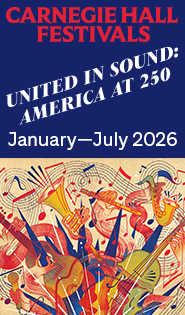Music Before 1800 just misses the mark in ambitious “Letters to a Young Poet”

“Cowardice is something that does endless damage to life.” That is from Rainer Maria Rilke, collected in Letters to a Young Poet. The line was delivered Sunday afternoon by Bill Barclay from the stage at the New York Society for Ethical Culture, during the latest presentation from Music Before 1800.
Barclay wasn’t giving any kind of introduction; he was acting in the role of Rilke, alongside David Joseph as Franz Kappus, the officer trainee and aspiring poet who was Rilke’s correspondent for these famous letters. There was music too, the Diderot String Quartet playing two of the great quartets as part of an integrated music and theater event titled, appropriately, “Letters to a Young Poet.”
Barclay is a model for following Rilke’s admonition. As the new artistic director of MB1800, he’s been stretching both the geographic and narrative limits of early music that have been long established. A composer, actor, and playwright himself, he’s also the artistic director of Concert Theater Works. Through that group, he adapts music into drama, including the wonderful “Secret Byrd” where Byrd’s music is sung as a clandestine Catholic mass. His approach to programming, explorative and also grounded in the tradition and context of early music, is one of the most creative and stimulating things happening on New York City’s classical music scene.
“Letters to a Young Poet” was further afield—the music was from after 1800, Ravel’s and Debussy’s string quartets. This was ideal for both the era (the correspondence was from 1903, the same year as Ravel’s quartet) and the dialogues about inner life, solitude, what Rimbaud called the “derangement of the senses”; the fuel of creation. And this was a dialogue, as Kappus’ side of it was recently published, and Barclay adapted the two voices from seven different letters.
A compelling subject right up front, and an admirable extension of MB1800’s scope, this was fascinating to experience. Still, it never completely came together with a clear and pointed effect. Great music and great words moved in parallel with each other, yet never gelled, and there were stumbling blocks within each.
Part of this was the sequential form. The Diderot would play, usually a full movement but in the case of the first movement of Ravel’s quartet, one half, then Barclay or Joseph would perform their characters. The only moments when music and words went together were at the start of the slow movements of each quartet, where Barclay carefully placed the finishing words of a Rilke letter he had been speaking before the playing began. For a work where each medium was meant to add to the context of meaning of the other, those moments were the pinnacle of the afternoon.
But they barely made a handful. Instead there was a start-stop quality that dis-integrated what should have been connected. The words didn’t really set up the music, nor did the music color the words. There was a technical flaw too, in that the actors were miked while the Diderot was not, and so two parties in close proximity on stage had entirely different sonic qualities and in terms of the senses were kept apart. (The miking also was poor, with a lot of muddle and garbled sound—just another example of how often classical music organizations in New York are defeated by amateurish amplification.)
The Diderot’s performance was also not quite there. There were enough tiny, consistent flaws in the playing that held back satisfaction. In both quartets, they added some portamento in surprising places, which was intriguing when it worked, but too often ended up in intonation that was off, which made it distracting.
The break in the opening movement of the Ravel seemed to dissipate some energy, and while the “Assez vif” was lively, the finale never got hot. After intermission, the Debussy quartet was more robust all around, the only interruptions between movements, but there were enough sloppy moments that it didn’t feel fully prepared.
That was the impression of the entire event, that the performers were still feeling their way through this program enough that the suppleness of mastery lies just a little further in the future. But that Barclay and MB1800 have made this is encouraging. Better to live with courage than cowardice.
Sequentia performs Gregorius-The Holy Sinner, a Medieval narrative poem, at Corpus Christi Church, 4 p.m., January 12, 2025. mb1800.org

